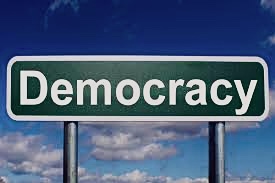In essence, democracy is a form of governance that allows citizens to actively engage in the process of making decisions. Equality, representation, and individual rights are embodied in it, and it goes beyond simple governance. The idea that people have the right to shape the policies that affect their lives is what gives democracy its true meaning.

As a means of expressing the will of the people, leaders in democracies are chosen through free and fair elections. Not only is voting an essential component of the basic idea, but it also guarantees that all voices are heard, promotes inclusion, and keeps power from being concentrated in the hands of a small number of individuals.
Furthermore, civilizations and cultures understand democracy differently, making it a non-universal idea. Representative democracies, in which elected officials represent the public, differ from direct democracies, in which voters actively engage in decision-making. In order to truly understand democracy, it is imperative that a balance be struck between individual freedom and group decision-making.

What’s important to remember is that democracy is a set of values that upholds human rights, promotes discussion, and protects marginalized groups. In order to avoid the tyranny of the majority and to ensure a society that values variety and dissent, the protection of individual liberty is essential.
Still, there are obstacles in the way of achieving the perfect democracy. The fundamental tenets of democracy can be compromised by problems like political division, disinformation, and voter suppression. The correct operation of democracy depends on an informed and involved populace, underscoring the need of education and unrestricted access to information.
Conclusion
Empowering people, fostering inclusivity, and protecting human rights are vital to democracy’s true essence. The system is dynamic and necessitates ongoing efforts to protect its tenets and adjust to changing societal requirements.